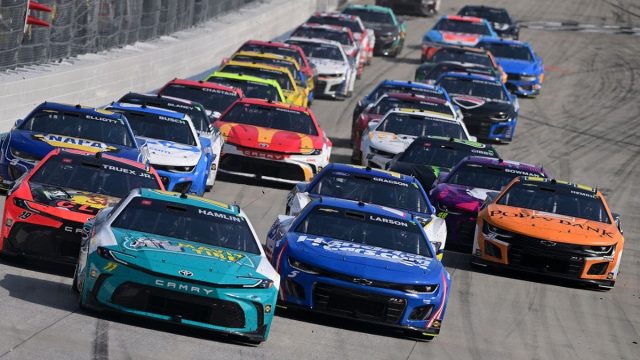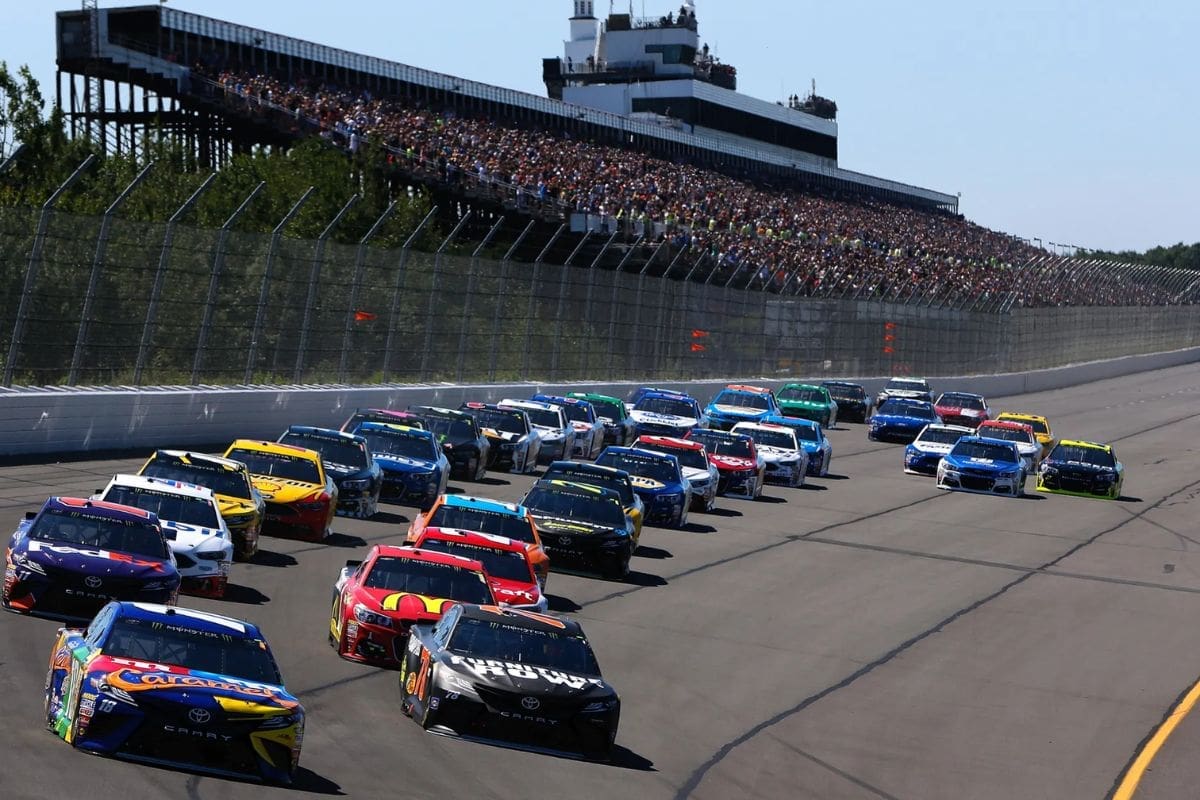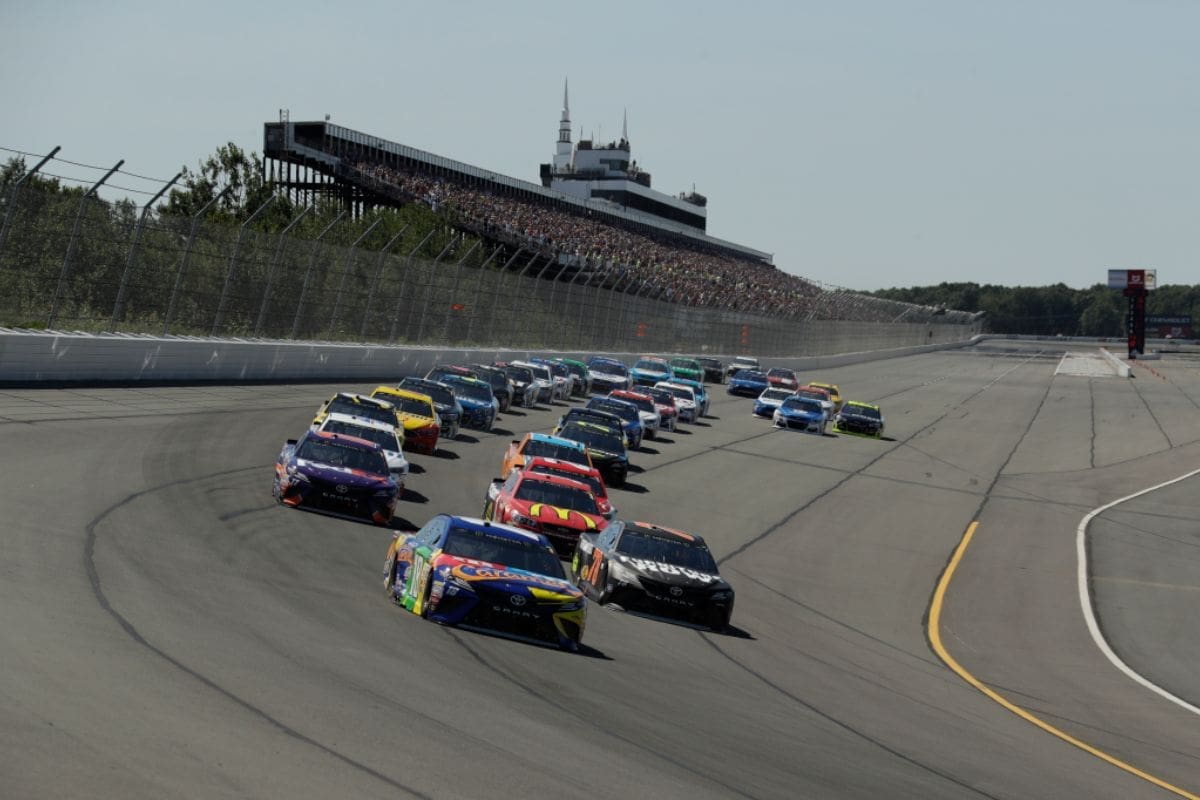Charter Negotiation Changes: As NASCAR insiders disclose pivotal changes in charter negotiations, teams are reassessing their approaches to align with the evolving dynamics. The Team Negotiations Committee‘s counterproposal, aimed at addressing financial sustainability, has brought new variables into the discussions, potentially reshaping the charter market. With permanent charters and economic stability at the core of the debate, teams are scrutinizing NASCAR’s propositions to measure their long-term viability. This unfolding situation promises to redefine the charter system, leaving stakeholders on edge as they anticipate the impact of these tactical shifts on the future of the sport.
Key Highlights
- NASCAR’s latest charter proposal faces resistance from teams prioritizing financial stability and long-term investments.
- Teams’ counterproposal includes a predictable revenue-sharing model and transparency in charter transactions.
- NASCAR’s internal restructuring aims to modernize operations and address financial imbalances.
- Leadership adjustments include new roles for Tim Clark and Eric Nyquist to enhance brand and influence strategies.
- Media partnerships with FOX, CBS, Amazon Prime, and Turner Sports are crucial for navigating the $7.7 billion media rights deal.
Ongoing Charter Negotiations in NASCAR
The ongoing charter negotiations between NASCAR and the Team Negotiations Committee (TNC) have reached a critical point, with both sides working hard to reconcile their differences over the terms of the new agreement. Central to the discussions is the issue of permanent charters—a pivotal concern for race teams grappling with financial instability increased by rising inflation. NASCAR’s latest proposal, extended in May, was met with considerable resistance from the TNC, highlighting the tensions that underlie these negotiations.
NASCAR’s reluctance to issue permanent charters stems from a desire to maintain operational flexibility and financial prudence. The governing body argues that providing permanent charters could anchor teams that are financially unsustainable, thereby compromising the sport’s long-term health. This stance, however, has not been well received by the TNC, which represents teams that view permanent charters as crucial for securing sponsorships and long-term investments. The security offered by permanent charters is seen as crucial for financial stability, especially in an era marked by economic uncertainties.
As negotiations continue, the TNC has been steadfast in its pursuit of terms that not only guarantee immediate financial relief but also provide a sustainable path forward. The teams’ insistence on permanent charters indicates a broader strategy aimed at mitigating financial risks and securing their positions within the sport. Both NASCAR and the TNC are under pressure to find common ground, as the 2024 season comes to end, marking the penultimate year of the existing seven-year agreement.
Teams’ Counterproposal and Market Impact
In response to NASCAR’s latest proposal, the Team Negotiations Committee (TNC) has crafted a counterproposal that not only addresses the immediate financial concerns of race teams but also aims to stabilize the charter market amidst significant fluctuations. The TNC’s approach is multi-faceted, focusing on short-term sustainability and long-term market equilibrium.
A key element of the counterproposal is the introduction of a more predictable revenue-sharing model, which seeks to buffer teams against market volatility. This is particularly vital given the recent sharp decline in charter prices, which reduced from $40 million to approximately $20-$25 million following the Stewart-Haas Racing (SHR) foreclosure. By ensuring more consistent income streams, teams can invest in performance improvements and operational stability without being overly reliant on fluctuating charter valuations.
Additionally, the TNC has proposed a graduated entry fee structure for new teams, designed to encourage new participation without destabilizing existing team investments. This approach is intended to balance market demand and supply, especially as only two of the four new charters from the SHR dissolution remain available. This adjustment could curb speculative investments, promoting a more tactically sound market environment.
The counterproposal also highlights improved transparency in charter transactions. By mandating clearer reporting and oversight mechanisms, the TNC aims to prevent the recurrence of sudden devaluations that can negatively impact team planning and financial health.
“The teams just gave a counter proposal last week so will see when nascar responds. How and when likely will determine any timelines to getting a deal done.” – (Pockrass)
The teams just gave a counter proposal last week so will see when nascar responds. How and when likely will determine any timelines to getting a deal done. https://t.co/bpNNhU5gux
— Bob Pockrass (@bobpockrass) July 18, 2024
Financial Struggles and Team Concerns
Facing mounting financial pressures, NASCAR teams are grappling with escalating costs and an outdated revenue-sharing model that worsens their economic challenges. The current financial landscape is severe, with Denny Hamlin of 23XI Racing revealing it costs his team $18 million annually to field a car. This figure highlights the broader financial strain prevalent in the sport.
“It costs us (23XI Racing) $18 million a year to put a car on the racetrack.” – (hamlin)
Teams spend roughly a million dollars on tires alone each year, a substantial outlay given the limited reusability of the Next-Gen car’s parts, which RFK Racing’s Brad Keselowski describes as ‘more costly.
The revenue-sharing model, which allocates only 35-39% of media rights income and purse money to teams, has drawn significant criticism. This outdated framework fails to adequately cover the growing operational costs, leading to unsustainable financial models. Bob Jenkins owner of Front Row Motorsports highlighted the critical survival rate of teams within the current charter system, pointing out that only seven out of the original 19 teams remain. Such a high attrition rate signals fundamental flaws in the charter system, emphasizing the urgent need for reform.
“There were 19 teams when we started this system, and there’s seven of them left… “If there is a 50 percent chance of survival in your charter system, you probably need a new charter system.” – (Bob Jenkins)
Moreover, the financial burden is further compounded by the requirement for constant investment in technology and competitive upgrades, which are crucial to remain relevant and competitive. This puts smaller teams at a distinct disadvantage, unable to match the financial strength of wealthier competitors, thereby widening the competitive disparity within the sport.
NASCAR’s Proposed Changes and Team Demands
Frequently, NASCAR’s proposed alterations aim to address the financial imbalances and competitive discrepancies that have long ruined the sport. The latest negotiations indicate a clear push from NASCAR to create a more balanced and sustainable model, one that seeks to level the playing field for smaller teams while maintaining the competitive edge of larger, more established outfits.
However, the teams’ demands are equally notable in shaping these negotiations. Central to their concerns is the viability of the current system, which many argue disproportionately benefits a select few while leaving others to struggle for survival. Teams are demanding for a more fair distribution of revenues and a transparent framework that ensures long-term financial stability and competitive fairness.
One particularly controversial proposal from NASCAR involves the potential to exclude non-compliant teams from the series, a move perceived as a pressure tactic to force agreement. This has been met with resistance from team owners who argue that such measures would be harmful to the sport’s integrity and fan engagement. The essence of their argument is that NASCAR thrives on the diversity and rivalry of its full roster of teams, and any reduction would dilute the competitive spirit that draws fans to the sport.
In parallel, NASCAR is preparing for a radical shift in the charter agreement, signaling potential sweeping changes that could redefine team operations and financial structures. This preparation highlights the sanctioning body’s acknowledgment of the need for reform, although with a firm stance on controlling the narrative and outcomes of these pivotal negotiations.
NASCAR’s Internal Restructuring
NASCAR’s internal restructuring aims to modernize the organization by enhancing operational efficiency and aligning with the evolving demands of a multi-partner media landscape. This noteworthy overhaul includes the formation of a new ‘venue and racing innovations‘ department, headed by Ben Kennedy, former SVP of racing development and strategy. This reorganization seeks to integrate scheduling, facility development, and consumer approach divisions, providing a more cohesive approach to NASCAR’s operational blueprint.
“The new division will be a combination of the scheduling and facility development groups, putting the two together with Nascar’s consumer strategy division.” – (Forbes)
The restructuring has also seen key personnel shifts to strengthen NASCAR’s leadership. Tim Clark has been promoted to Executive Vice President and Chief Brand Officer, while Eric Nyquist has ascended to the role of Senior Vice President and Chief Impact Officer. Both will report to NASCAR COO Steve O’Donnell. These moves are crafted to guarantee that NASCAR can adeptly manage its expanded media partnerships, which now include FOX, CBS, Amazon Prime, and Turner Sports.
President Steve Phelps will assume heightened responsibilities, suggesting a more centralized decision-making process. This is particularly essential as NASCAR navigates the complexities of its $7.7 billion media rights deal and the demands from TNC for a larger share of media revenue and a permanent charter system.
As NASCAR adapts to these structural changes, the focus remains on whether these internal adjustments will translate to beneficial reforms for race teams. The strategic realignment aims not only to fortify NASCAR’s operational core but also to strengthen sustained growth and adaptability in a rapidly evolving sports media environment. The impact on race teams, however, remains a closely watched development, with noteworthy consequences anticipated shortly.
News in Brief: Charter Negotiation Changes
The changing charter negotiations within NASCAR are marked by tactical counterproposals and heightened financial examination. This shows the critical need for a reformed system prioritizing long-term stability and growth. As teams and NASCAR go through these complex discussions, the outcome will greatly influence the financial viability and competitive balance of the sport.
The resolution of these negotiations will be crucial in shaping the future landscape of NASCAR, ensuring sustainable operations, and fostering a strong and fair charter market.
ALSO READ: NASCAR Driver and Team With the Most Victories at Indianapolis Motor Speedway



